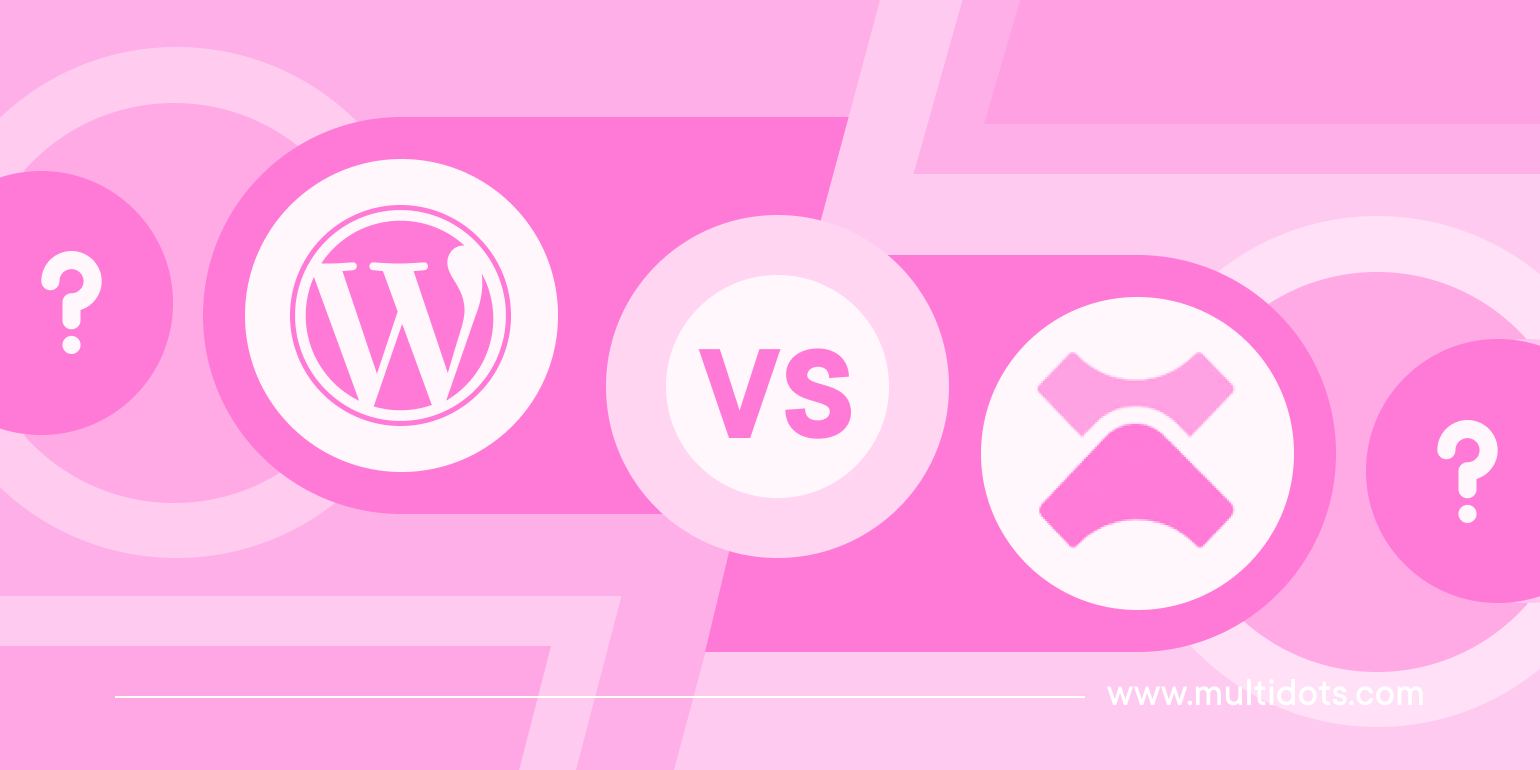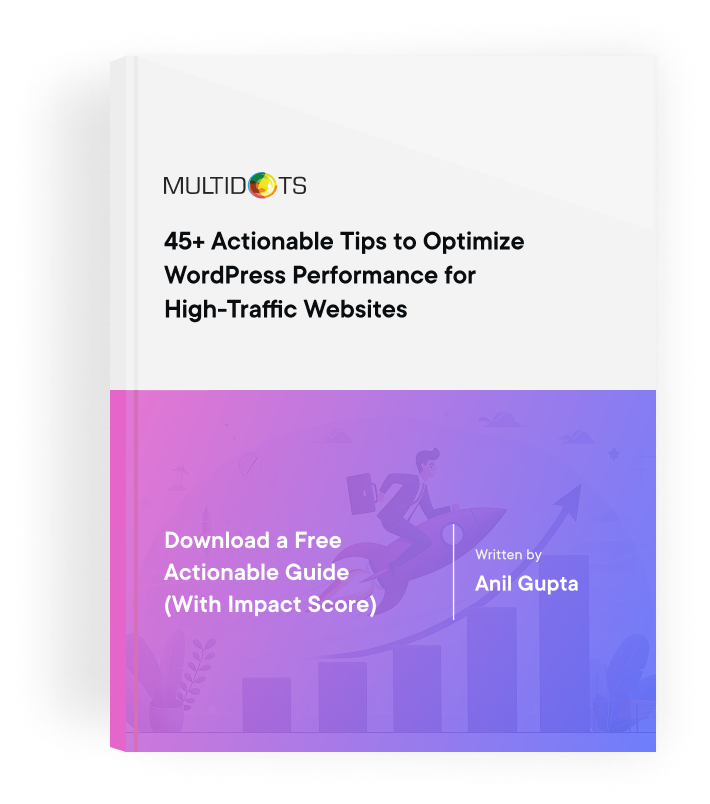WordPress vs. Sitecore XM Cloud: Which CMS is Best for Enterprises?
Why are so many enterprises ditching Sitecore for WordPress? Uncover the surprising reasons!

Table of Contents
A content management system (CMS) is central to an enterprise’s digital presence. The right one will help streamline the content creation process and deliver delightful experiences to the audience.
Moreover, a CMS sets the foundation for future scalability and protects sensitive data of the organization. This makes it crucial for enterprises to make the right choice while selecting a platform to build their website on.
Among many options, Sitecore XM Cloud and WordPress stand out as top choices for enterprise-level CMS needs because of their ability to support large and heavy websites.
Sitecore XM Cloud excels at delivering personalized and omnichannel experiences, something large organizations definitely need. Similarly, WordPress is easy to use, cost-effective, and significantly customizable.
So, which is the right choice?
In this article, let’s take a closer look at both options and evaluate them for enterprises to declare a clear winner.
What is Sitecore XM Cloud?
Sitecore XM Cloud is a proprietary CMS specifically designed for large organizations looking to deliver multichannel experiences at scale. It offers a suite of tools that simplify content management which enables teams to market themselves more effectively.
Additionally, it is fully managed and cloud-based (evident from the name) which translates to reduced IT burden, automatic updates, higher reliability, and easier scalability.
Enterprises using Sitecore XM Cloud can look forward to enterprise-grade security features such as encryption and role-based access. This is crucial for achieving legal compliance and protecting private information.
Furthermore, Sitecore XM Cloud offers strong headless capabilities, enabling content delivery across multiple channels through APIs. This allows organizations to provide consistent and personalized experiences on websites, mobile apps, and other digital platforms.
However, everything is not perfect with this proprietary CMS. Companies have to pay high licensing fees, which can affect budget allocation for various departments. Teams also need dedicated training to get the hang of it or need technical assistance.
It is also challenging to bring custom site functionality or integrate it with other tools with Sitecore XM Cloud. Due to its closed-source nature, businesses need to hire dedicated developers to build these extra features, increasing operational costs further.
What is WordPress?
WordPress is a widely used open-source CMS, preferred by users across the board. Everyone from individual bloggers to multinational corporations has leveraged WordPress to build a strong digital presence.
Known for its user-friendly interface, WordPress allows even non-technical stakeholders to manage content effectively.
Moreover, WordPress has significantly improved its content management experience and development flexibility in recent years. The introduction of the block editor, Gutenberg, allows non-technical users to create dynamic content in a drag-and-drop interface.
Additionally, the open-source CMS’ compatibility with headless setups via REST API and GraphQL enables developers to decouple the frontend from the backend. Consequently, enterprises can deliver personalized content seamlessly to any device or browser.
On top of that, enterprises can expand their site’s functionality within seconds by choosing one out of more than 59,000 plugins. Whether it is SEO tools or security plugins, teams can bring any custom feature to their website without developers’ assistance.
This makes scalability easier, something that enterprises need to consider before making a choice.
Furthermore, since it is an open-source platform, enterprises can save massively on the $0 licensing fees. Also, due to WordPress’ popularity, experienced developers are plentily available at affordable prices, reducing maintenance expenses even more.
Another thing that makes WordPress unique is its global community. This facilitates knowledge exchange between various users, enabling teams to maximize their website’s potential.
However, this flexibility and broad customizability do pose some risks. There are plenty of poorly designed WordPress plugins and themes. Using them may make the enterprise data vulnerable. Teams have to critically evaluate every add-on to ensure security.
Sitecore XM Cloud vs. WordPress
When comparing Sitecore XM Cloud and WordPress, each platform offers distinct advantages and trade-offs across critical parameters.
1. Cost and Ownership
Sitecore XM Cloud is a premium, enterprise-level CMS with high licensing and operational costs. It often requires significant investment in both software and technical expertise.
WordPress, being open-source, is free to use, with costs mainly associated with hosting, premium themes, and plugins. In fact, enterprises can save millions of dollars by simply migrating from Sitecore to WordPress in three years:
| Cost | WordPress | Sitecore XM (On-Premise) | Sitecore XM Cloud |
|---|---|---|---|
| License Cost (Annual) | $0 | $80,000 to $150,000+ | $100,000 to $200,000+ |
| Design and Build (One-time) | $50,000 to $100,000 | $100,000 to $300,000+ | $100,000 to $200,000+ |
| Cloud and Hosting (Annual) | $25000+ | $100,000+ | $0 |
| Average Cost of 5 Premium Add-ons (Annual) | $25000+ | $100,000+ | $60,000+ |
| Support and Maintenance (Annual) | $12,000 to $24,000 | $25,000 to $75,000 | $30,000 to $100,000 |
| Non-Production Installations (Annual) | $0 | $20,000 to $50,000 | $0 |
| Total Cost (1st Year) | $100K to $180K | $400K to $800K | $300K to $600K |
| Total Cost (3 Years) | 🏆 $200K to $350K | $1M to $2M | $700K to $1.5M |
2. Ease of Use
WordPress is well-known for its ease of use, especially for non-technical users, thanks to its intuitive interface and visual editors.
Sitecore XM Cloud, while feature-rich, has a steeper learning curve and often demands specialized knowledge. This can slow teams down as companies have to pause daily operations until the users are comfortable with the platform.
3. Flexibility and Customization
This is where WordPress has a clear advantage.
Enterprises will get options at each step of the way, from hosting providers to themes and content editors with WordPress. The open-source nature of the most popular CMS encourages a culture of continuous innovation, leading to a plethora of choices.
On the other hand, Sitecore XM Cloud’s proprietary and closed-source nature limits options and leads to vendor lock-in. This can affect scalability down the line.
4. Performance and Scalability
Both CMS options deliver identical performance for heavy websites that get millions of monthly visitors. Sitecore XM Cloud and WordPress, when aptly configured, can seamlessly scale up while delivering a great experience even with multi-site deployments.
5. Content Management and SEO
Sitecore offers advanced content management, robust multilingual support, and integrated analytics for detailed customer insights. WordPress is strong in SEO due to its numerous plugins (e.g., Yoast SEO) and straightforward content management.
WordPress also allows users to use their preferred visual editor and bring content creation tools such as AI-powered plugins right into their workspace.
6. Support and Community
Sitecore provides dedicated support but relies on licensed partnerships and a smaller community due to its proprietary nature.
WordPress boasts a massive, active community with abundant resources, tutorials, and third-party support, making it easier to find solutions to common issues independently.
Wrapping Up
Enterprises need a user-friendly, robust, and scalable CMS to create impactful digital experiences for their audience. WordPress meets this ideal, providing a powerful and cost-effective platform.
Teams can start enjoying the benefits of WordPress by migrating from Sitecore. With the help of an experienced migration agency, companies can make a swift transition without disrupting daily operations.
Multidots specializes in Sitecore to WordPress migration of enterprise websites. Our team ensures a hassle-free transfer of data and functionalities to help enterprises make the most out of WordPress.
Ready to bolster your online presence?
Contact us for a free consultation today.
FAQs
-
Sitecore XM Cloud offers enterprise-level features like advanced personalization, multi-site management, and marketing automation. Its cloud-based infrastructure enhances scalability, performance, and security, making it ideal for organizations with complex digital experience needs.
-
Yes, WordPress is versatile and scalable, suitable for both small businesses and large enterprises. It can handle high-traffic sites and complex requirements with the right configuration, making it a viable choice for organizations of any size.
-
Sitecore’s headless architecture allows developers to build front-end experiences independently of the CMS, enabling fairly fast and flexible development and integration with other applications, APIs, and third-party services across various channels.
-
Yes, migration is possible, though the complexity varies by CMS. Both platforms offer migration support, and partnering with a migration agency can simplify the process, ensuring data integrity and minimal disruption.
-
Sitecore offers dedicated support via licensed partners, while WordPress benefits from a large community, extensive online resources, and third-party support. Many enterprises choose WordPress agencies for ongoing assistance and custom development.
Feel free to schedule a quick call with our migration expert.
Contact Us
